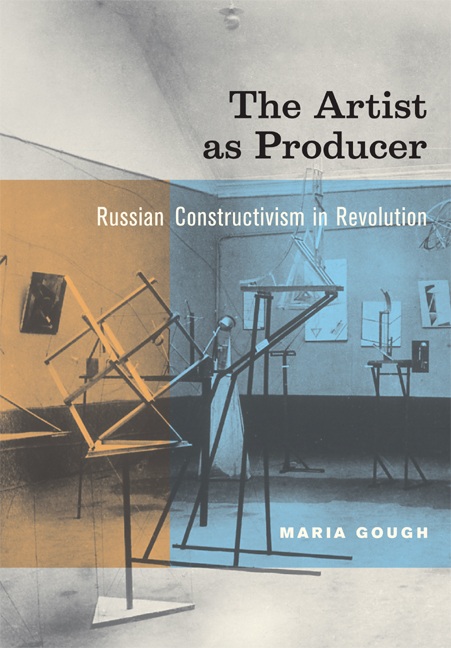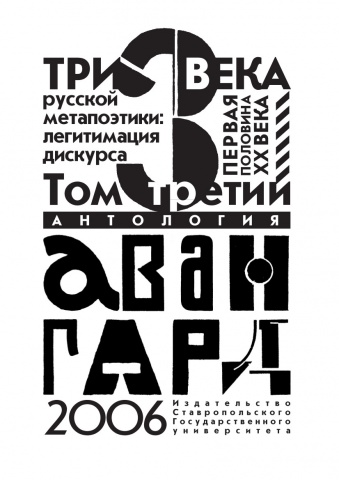Roman Jakobson: My Futurist Years (1992/1997)
Filed under book | Tags: · 1910s, 1920s, biography, dada, formalism, futurism, language, linguistics, literary theory, literature, poetics, poetry, slavic studies

“Born in Moscow in 1896, Roman Jakobson was a founder of and a key figure in two influential schools of 20th century literary thought: Russian formalism, and later, during his years in Prague, structuralism. Forced to flee the invading Nazis, Jakobson spent time in Denmark, Norway, and Sweden, before coming to the United States in 1941. During his long and illustrious academic career in the U.S., Jakobson was a professor of literature and linguistics at Columbia, Harvard and MIT. Up to his death in 1982, he published 500 monographs and articles on linguistics, Slavic studies, poetics, and semiotics.
Vital as the extraordinary innovative and turbulent period that spawned these writings, My Futurist Years is one of the most important reflections on the Russian Futurist movement and a cornerstone in the career of one of the century’s greatest linguistic and literary thinkers.
Jakobson’s rare sensibility in his explorations in language and art are no more evident than in this volume, detailing the formative moment in his public and personal life. Along with the quite moving recollections of his friendships with such Modernist figures as Mayakovsky, Khlebnikov, and Malevich, the book includes Jakobson’s letters to other Futurists active in the scene and to his close friend Elsa Brik, later to gain notoriety as the French writer Elsa Triolet and wife of the poet Louis Aragon.” (from the back cover)
First published in Russian as Jakobson-budetljanin: sbornik materialov, Almqvist & Wiksell International, Stockholm, 1992.
Compiled and Edited by Bengt Jangfeldt
Translated and with an Introduction by Stephen Rudy
Publisher Marsilio, New York, 1997
ISBN 0941419797
371 pages
in the Unlimited Edition
Review: Avril Pyman (Slavonic & East European Review, 1993).
PDF (21 MB, updated on 2019-9-27)
Comment (0)Maria Gough: The Artist as Producer: Russian Constructivism in Revolution (2005)
Filed under book | Tags: · 1920s, architecture, art, art history, art theory, avant-garde, communism, composition, constructivism, electricity, formalism, functionalism, politics, productivism, revolution, russia

“The Artist as Producer reshapes our understanding of the fundamental contribution of the Russian avant-garde to the development of modernism. Focusing on the single most important hotbed of Constructivist activity in the early 1920s—the Institute of Artistic Culture (INKhUK) in Moscow—Maria Gough offers a powerful reinterpretation of the work of the first group of artists to call themselves Constructivists. Her lively narrative ranges from famous figures such as Aleksandr Rodchenko to others who are much less well known, such as Karl Ioganson, a key member of the state-funded INKhUK whose work paved the way for an eventual dematerialization of the integral art object.
Through the mining of untapped archives and collections in Russia and Latvia and a close reading of key Constructivist works, Gough highlights fundamental differences among the Moscow group in their handling of the experimental new sculptural form—the spatial construction—and of their subsequent shift to industrial production. The Artist as Producer upends the standard view that the Moscow group’s formalism and abstraction were incompatible with the sociopolitical imperatives of the new Communist state. It challenges the common equation of Constructivism with functionalism and utilitarianism by delineating a contrary tendency toward non-determinism and an alternate orientation to process rather than product. Finally, the book counters the popular perception that Constructivism failed in its ambition to enter production by presenting the first-ever case study of how a Constructivist could, and in fact did, operate within an industrial environment. The Artist as Producer offers provocative new perspectives on three critical issues—formalism, functionalism, and failure—that are of central importance to our understanding not only of the Soviet phenomenon but also of the European vanguards more generally.”
Publisher University of California Press, 2005
ISBN 9780520226180
xi+257 pages
Reviews: Paul Wood (Art Journal, 2006), Charlotte Douglas (Modernism/modernity, 2006), Elizabeth Kridl Valkenier (Russian Review, 2006), Patricia Railing (Slavic Review, 2007), Douglas Greenfield (Slavic and East European Journal, 2007), Roann Barris (SECAC Review, 2007).
PDF (21 MB, no OCR)
Comment (1)K.E. Shtayn (ed.), Three Centuries of Russian Metapoetics, Vol. 3: Avant-Garde: Cubo-Futurism, Ego-Futurism, Centrifuge, Rayonism, Imaginism, Proletkult, LEF, VAPP, Constructivism, Oberiu (2006) [Russian]
Filed under book | Tags: · 1910s, 1920s, 1930s, art history, avant-garde, constructivism, cubo-futurism, ego-futurism, formalism, futurism, literary theory, literature, poetry, proletkult, russia, visual poetry

An encyclopedic collection of Russian literary avant-garde writing of the first half of the 20th century.
Tri veka russkoy metapoetiki: Legitimatsiya diskursa, Tom 3: Pervaya polovina XX veka. Avangard: Kubofuturizm. Egofuturizm. Tsentrifuga. Luchizm. Imazhinizm. Proletkul’t. Lef. VAPP. Konstruktivizm. OBERIU
Publisher Izdatelstvo Stavropolskogo gosudarstvennogo universiteta, Stavropol, 2006
ISBN 5886485120
830 pages
Russian avant-garde bibliography at Monoskop wiki
PDF
See also Russkaya metapoetika. Uchebnyy slovar, 2006
Download another 3 volumes

